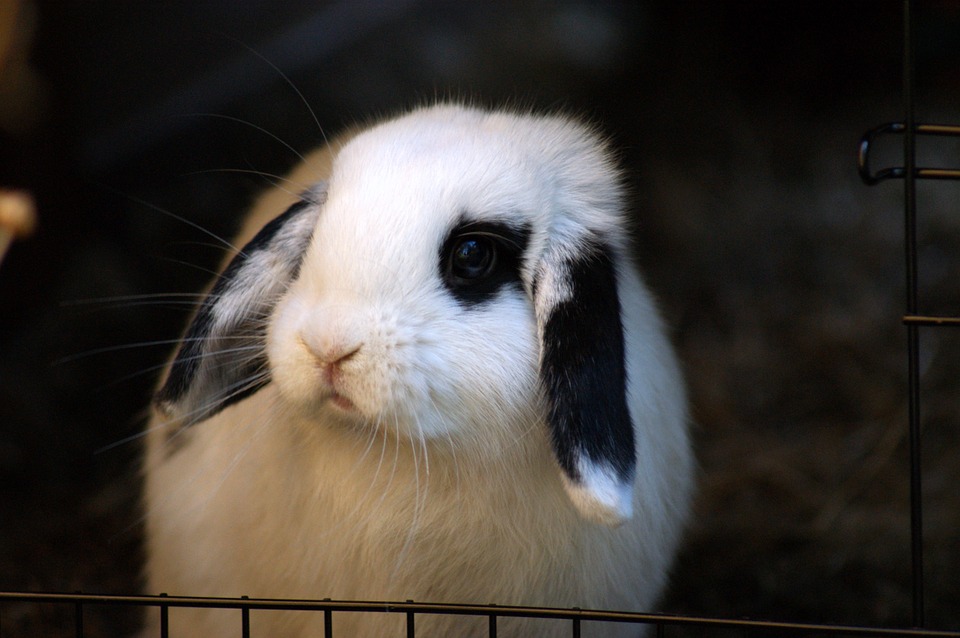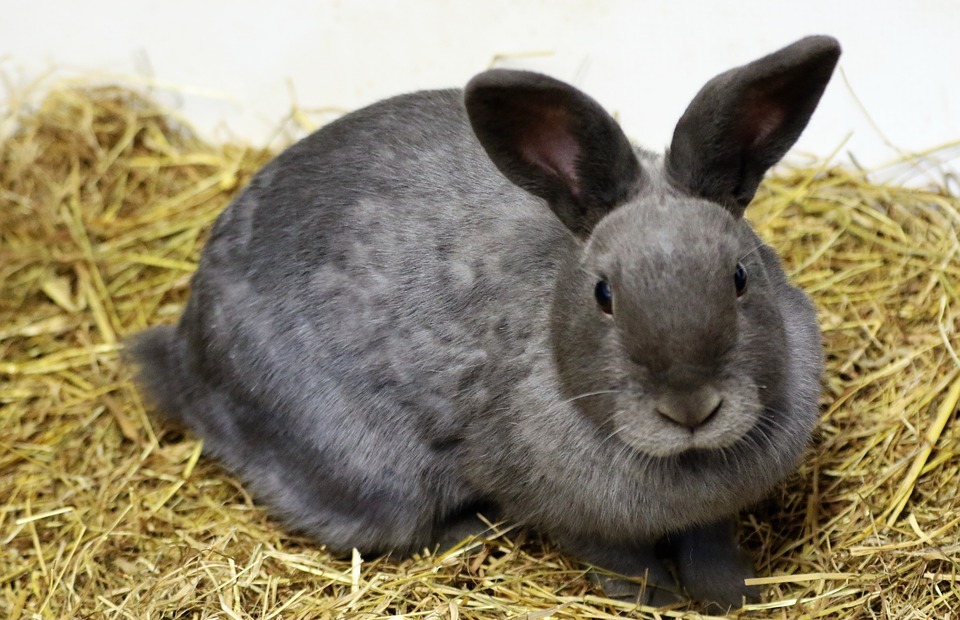This comprehensive guide explores the suitability of potatoes for rabbits, dissecting their nutritional value, potential risks, and the importance of a balanced diet. We'll provide a detailed understanding of rabbit digestion, safe food choices, and the dangers of feeding potatoes.
Part 1: Understanding the Digestive Delicacy of Rabbits

1.1 The Intricacies of a Herbivore's Gut
Rabbits, with their long and complex digestive systems, are herbivores designed to thrive on a diet primarily composed of fibrous plant matter. Their digestive process involves two stages:
- Caecum Fermentation: A large pouch in the hindgut where bacteria break down fibre, producing essential nutrients and short-chain fatty acids.
- Coprophagy: The consumption of soft faecal pellets, rich in nutrients, to absorb essential vitamins and minerals.
1.2 The Crucial Role of Fibre
Fibre, the essential building block of a rabbit's diet, plays a vital role in:
- Maintaining Digestive Health: Stimulates gut motility, preventing stasis and ensuring efficient waste removal.
- Nourishing Gut Bacteria: Provides the ideal environment for the growth of beneficial bacteria, crucial for digestion and nutrient absorption.
- Promoting Dental Hygiene: Continuous chewing on fibrous foods helps wear down teeth, preventing overgrown teeth and dental problems.
Part 2: Unveiling the Nutritional Landscape of Potatoes

2.1 A Nutrient-Rich Starchy Staple
Potatoes, a staple food source worldwide, are a good source of:
- Carbohydrates: Primarily starch, providing energy for the body.
- Vitamin C: An essential antioxidant for immune function and tissue repair.
- Potassium: A vital mineral for regulating blood pressure and muscle function.
- Fibre: While lower in fibre than many other vegetables, potatoes still contribute to gut health.
2.2 The Starch Dilemma: A Rabbit's Perspective
The high starch content of potatoes presents a significant challenge for rabbits. While starch provides energy, excessive intake can lead to:
- Digestive Upset: The starch content can disrupt the delicate balance of gut bacteria and cause diarrhoea, bloating, and gastrointestinal stasis.
- Nutritional Imbalances: A potato-heavy diet can lead to deficiencies in essential vitamins and minerals found in a balanced rabbit diet.
Part 3: Deciphering the Risks of Potato Consumption
3.1 Digestive Distress: A Common Consequence
The high starch content in potatoes poses a significant threat to a rabbit's digestive system. It can cause:
- Diarrhoea: Loose stools, often accompanied by watery consistency, indicating digestive upset.
- Bloating: Gas build-up in the stomach, leading to discomfort and potentially painful abdominal distension.
- Gastrointestinal Stasis: A serious condition where the digestive process slows down, leading to decreased food intake, weight loss, and potentially fatal complications.
3.2 Nutritional Imbalances: A Silent Threat
While potatoes offer some nutrients, relying on them exclusively can lead to:
- Vitamin Deficiencies: Lack of essential vitamins like vitamin A, vitamin K, and B vitamins can compromise overall health and immune function.
- Mineral Deficiencies: Insufficient intake of minerals like calcium, magnesium, and iron can lead to bone problems, muscle weakness, and other health issues.
3.3 The Danger of Green Potatoes: Solanine Toxicity
Green potatoes, the parts that have turned green due to exposure to light, contain solanine, a toxic compound. Solanine can cause:
- Gastrointestinal Distress: Vomiting, diarrhoea, and abdominal pain.
- Neurological Symptoms: Weakness, lethargy, loss of coordination, and potentially seizures.
- Cardiovascular Effects: Rapid heartbeat, increased blood pressure, and potentially heart problems.
Part 4: The Verdict: Potatoes and Rabbits - A No-Go
Despite their nutritional value, potatoes pose a significant risk to rabbit health due to their high starch content and potential for digestive upset. It is not recommended to feed potatoes to rabbits.
Part 5: Navigating the Safe Foods for Your Rabbit
5.1 Hay: The Cornerstone of a Healthy Diet
Hay, rich in fibre, should form the majority of your rabbit's diet, providing essential nutrients and supporting healthy digestion.
- Timothy Hay: A high-quality hay suitable for adult rabbits, offering excellent fibre content and low sugar levels.
- Other Hay Options: Alfalfa hay (for growing rabbits), oat hay, and meadow hay can be offered in moderation.
5.2 Vegetables: A Rainbow of Nourishment
A variety of fresh vegetables provide essential vitamins, minerals, and moisture for your rabbit's health.
- Leafy Greens: Kale, spinach, romaine lettuce, parsley, cilantro (in moderation due to potential oxalate content).
- Cruciferous Vegetables: Broccoli, cauliflower, Brussels sprouts (in moderation for some rabbits).
- Root Vegetables: Carrots, parsnips, sweet potatoes (in moderation).
- Other Vegetables: Bell peppers, zucchini, cucumber, celery.
5.3 Pellets: A Supplement, Not a Staple
High-quality rabbit pellets, formulated for adult rabbits, can be offered in a small amount as a supplement to provide additional nutrients.
Part 6: Introducing New Foods Safely
Introducing new foods to your rabbit's diet should be done gradually and with caution:
- Small Introductions: Start with a tiny piece of the new food and observe your rabbit's reaction closely.
- Monitoring Digestive Health: Watch for any signs of diarrhoea, bloating, or other digestive problems. If any issues arise, discontinue the food immediately.
- Gradual Increase: If your rabbit tolerates the new food well, gradually increase the amount over several days or weeks.
Part 7: Maintaining a Healthy Rabbit Diet
7.1 A Balanced and Diverse Diet
Provide your rabbit with a varied diet consisting of fresh hay, a variety of safe vegetables, and a small amount of high-quality pellets.
7.2 Fresh Water: An Essential Necessity
Always ensure your rabbit has access to a clean, fresh supply of water.
7.3 Professional Guidance: Consult a Veterinarian
Seek advice from a veterinarian for personalized dietary recommendations based on your rabbit's age, breed, and health status.
Part 8: FAQs: Addressing Common Questions
8.1 Can rabbits eat cooked potatoes?
No, cooked potatoes are not suitable for rabbits. The cooking process changes the starch content, making it even more difficult for their digestive systems to process.
8.2 What about potato skins?
Potato skins are higher in starch than the flesh and should be avoided. They can also contain solanine, a toxic compound.
8.3 Can rabbits eat potato chips?
Potato chips are highly processed and contain excessive salt, fat, and preservatives, which can be harmful to rabbits. They should be avoided completely.
8.4 Can baby rabbits eat potatoes?
Baby rabbits are especially susceptible to digestive issues and should not be fed potatoes. Their digestive systems are not yet mature enough to handle the high starch content.
8.5 Can rabbits eat potato leaves?
Potato leaves are extremely toxic to rabbits and should never be given. They contain solanine and other harmful compounds that can cause severe illness and even death.
8.6 What are the signs of potato poisoning in rabbits?
Signs of potato poisoning in rabbits include vomiting, diarrhoea, weakness, lethargy, loss of appetite, and seizures. If you suspect your rabbit has ingested potatoes, seek veterinary attention immediately.
Everyone is watching
-

Do Rabbits Lay Eggs? (The Surprising Truth)
OTHER TYPES OF PETSThis article will unravel the common misconception that rabbits lay eggs, exploring the fascinating world of r...
-

What's a Group of Rabbits Called? (A Comprehensive Guide)
OTHER TYPES OF PETSThis article delves into the fascinating world of rabbits, exploring the various terms used to describe a grou...
-

Can Rabbits Eat Grapes? A Guide to Safe Rabbit Treats
OTHER TYPES OF PETSThis comprehensive guide will explore the safety and suitability of grapes for rabbits, providing detailed inf...
-

Predators That Hunt Rabbits: A Guide to Natural Enemies
OTHER TYPES OF PETSI've always been fascinated by the circle of life, that delicate dance between predator and prey. Growing up ...
-

Are Rabbits Nocturnal Animals?
OTHER TYPES OF PETSThe question of whether rabbits are nocturnal animals is a fascinating one, with a surprisingly complex answer...
